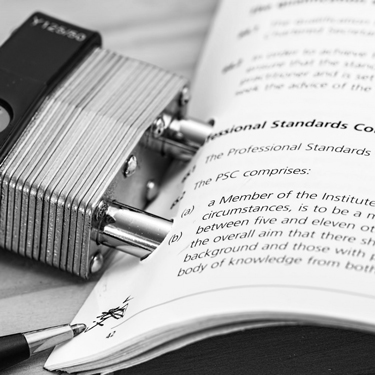
Choosing a Legal Document Translator
by brenton
When it comes to legal document translation, you have very specialized needs. The last thing you want is to end up with a contract that different people view differently because of errors in translation. Because of that, you’ll want to consider these criteria for choosing a legal document translator.
Choose a translator who is translating into their native language. While there are some people who are equally skilled at translating in both directions, you want a translator who is going to rewrite your contract for a native speaker. To avoid accidentally saying something that is the exact opposite of what you intended, you’re better off with a translator for whom the language is natural.
Look for a translator with a background in legal or technical language. The best way to get an accurate translation is to choose a translator who understands the language. That doesn’t mean that they have to understand the ins and outs of the law; it just means that you need someone who comprehends what they’re translating.
Look at previous work. See what else the translator has done. You don’t have to speak the language that they’re translating into in order to know that they’ve done a good job. Take a look at the clients they’ve worked for in the past. The more impressive the resume, the better the odds that you’re going to get an experienced translator who will do a quality job on your work.
Choose a respected translation company. If you’re working with a quality translation company with plenty of experience, you know that you’re getting translators who can be trusted with your legal documents.
Looking for more tips on contracting a legal document translator? Contact us to see how we can help.
Related Articles
Why Hyper-Localization and Personalization Are Defining Global Success
Translating content is no longer the benchmark for going global; it’s the baseline. As businesses expand into new markets, what truly drives growth in 2025 is the ability to connect meaningfully with audiences through hyper-localization and personalization. These strategies are redefining how brands communicate. Hyper-localization adapts your message to reflect not just a language,…
AI-Powered LQA and Human Review: The Smartest Way to Scale Localization
Every multilingual project begins with ambition: the ambition to connect, to scale, and to meet global audiences where they are. But ambition often collides with the reality of manual language review processes that strain valuable resources. This friction delays launches and diminishes the agility brands need to thrive internationally. The answer is not replacing people…
Connecting Through Language: Why Global Brands Are Investing in Multilingual Video
In today’s digital world, attention is the most valuable currency—and it’s increasingly multilingual. For brands expanding across borders, creating content that resonates globally isn’t just a competitive advantage; it’s a business necessity. Whether you’re onboarding a workforce, educating customers, or entertaining the masses, your audience expects more than a translated script. They expect localized video…
here
for you
We’d love to learn more about your translation and localization needs.